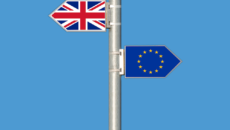The world is changing — fast! Technologies we only dreamed about a few years ago are now a reality, and new innovations are on the horizon. The digital economy has arrived, bringing with it the power to transform countries across Africa — and around the world. However, this opportunity must be pursued; change won’t happen automatically. Why should Liberia embrace the digital revolution and how can it succeed in the digital economy?
What Do We Mean by Digital Economy and Why Does it Matter?
New technologies, including but not limited to automation and artificial intelligence, are having a profound effect on how the business world works. For example, the labor market is changing, and jobs are disappearing in some sectors while new opportunities are being created in others. Cryptocurrencies and alternative payment methods are changing how people pay for goods and services and where they stash their wealth. Alibaba’s AliPay, for example, captured nearly the entire Chinese market for mobile payments.
What often accompanies digitalization? Optimization. Organizations that properly implement digital solutions often realize significant improvements in efficiencies and cost reductions, providing them with a competitive advantage.
According to The United Nations Conference on Trade and Development Digital Economy Report 2019, on a larger scale, the potential benefits of an expanding digital economy include:
-Â Â Â Increased tax revenues from the increased output of organizations
-Â Â Â Increased growth, productivity, and value
-Â Â Â Employment creation
-Â Â Â Higher investment
-Â Â Â Increased governmental efficiencies through e-government
-Â Â Â Increased customs revenue from automation
Some potential negative impacts include:
-Â Â Â Lost customs revenue due to digitalization of products
-Â Â Â Some tax losses from tax optimization practices by digital platforms and multinational enterprises
Digitalization and Global Competitiveness
Last month, New Perspectives on Global Economic Dynamics published a blog post on how digitalization is changing global competitiveness and economic prosperity. The post described how the world’s diverse economies could fare as they transform (or fail to transform) digitally. For example, western industrial countries such as the United States of America could become even more competitive, and more prosperous, by embracing digitization. Aging and economically weak industrial countries that do not succeed in this new digital era will become less competitive.
As far as developing countries in Africa go, their youthful populations are a plus — if sufficient investments in infrastructure and education are made. Another plus is a concept known as “leapfrogging,†where emerging countries skip a technological step and adopt the latest technologies. We witnessed this across Africa as countries without traditional landline networks built mobile networks. The blog post also noted that emerging economies lacking valuable raw materials and access to capital are at risk of being left even further behind because they are losing their competitiveness.
Why Should Liberia Strive to Be Competitive?
Pondering these thoughts, Liberia comes to mind. The World Economic Forum explains economic competitiveness in relatively simple terms:
A competitive economy, we believe, is a productive one. And productivity leads to growth, which leads to income levels and hopefully, at the risk of sounding simplistic, improved well-being.
Isn’t this what we all want for Liberians? Improved lives?
The digital economy is a means to that end. With its youthful population and the potential to “leapfrog†over outdated technologies in favor of new ones, Liberia has some unique advantages. While Liberia has a long way to go, so do all the other countries in the world.
In fact, the UNCTAD report stated the following:
Technology is not deterministic. It creates both opportunities and challenges. It is up to governments, in close dialogue with other stakeholders, to shape the digital economy by defining the rules of the game. This, in turn, requires a reasonable sense of the kind of digital future that is desirable. Policymakers need to make choices that can help reverse current trends towards widening inequalities and power imbalances wrought by the digital economy. This is a huge challenge that will involve the adaptation of existing policies, laws and regulations, and/or the adoption of new ones in many areas. For most countries, the digital economy and its long-term repercussions remain uncharted territory, and policies and regulations have not kept up with the rapid digital transformations taking place in economies and societies. Even in developed countries, few approaches have been tried and tested.
That said, Liberia’s readiness for the digital economy is fraught with obstacles that must be overcome such as extreme poverty, lack of infrastructure, corruption, and discontent among youths.
So, where should Liberia start? Here are a few thoughts on improving Liberia’s readiness for digitalization:
- Education — Liberia’s literacy rate for those ages 15 and older is just 48.3 percent. If Liberia wants to succeed in the digital era, this absolutely needs to change.
- Skills training — In addition to basic education, Liberian citizens need technical skills along with access to computers, communications systems, and the Internet.
- Entrepreneurship — Some of the world’s largest companies including IBM, Facebook, and Google were started by entrepreneurs. The Tony Elumelu Foundation, which promotes entrepreneurship across Africa, says that “The biggest business opportunities in the coming decade will be created by Africans who start businesses, generate jobs and wealth, and capture growth opportunities.â€
- Access to capital — Access to capital is critical to a country’s prosperity. From entrepreneurs and micro businesses to enterprises and governments, increasing access to capital will help improve Liberia’s competitiveness and readiness for the digital future.
- Infrastructure — Liberia’s poor infrastructure (such as roads, ICT, ports, railways, airports, energy, sanitation, and water) continues to constrain development. While improvements have been made, it’s slow going.
- End corruption — Liberia is rich in natural resources, but the country’s wealth is often siphoned off through corruption.
- Additional investments in e-Government — Secure, cloud-based technologies, databases, and other solutions can be leveraged to optimize government services and better serve citizens in Liberia.
- Youth empowerment — Addressing much of the above will go a long way in improving the lives of youths in Liberia, but a concentrated youth empowerment approach is even better. Workshops, job training, meaningful employment opportunities, access to technology, leadership training, and other activities should be utilized to prepare young Liberians for their roles in the digital economy.
The future is coming at breakneck speed, with new innovations arriving at an unprecedented pace. It’s an opportunity we can’t afford to ignore.
Featured photo courtesy of Gerd Altmann



